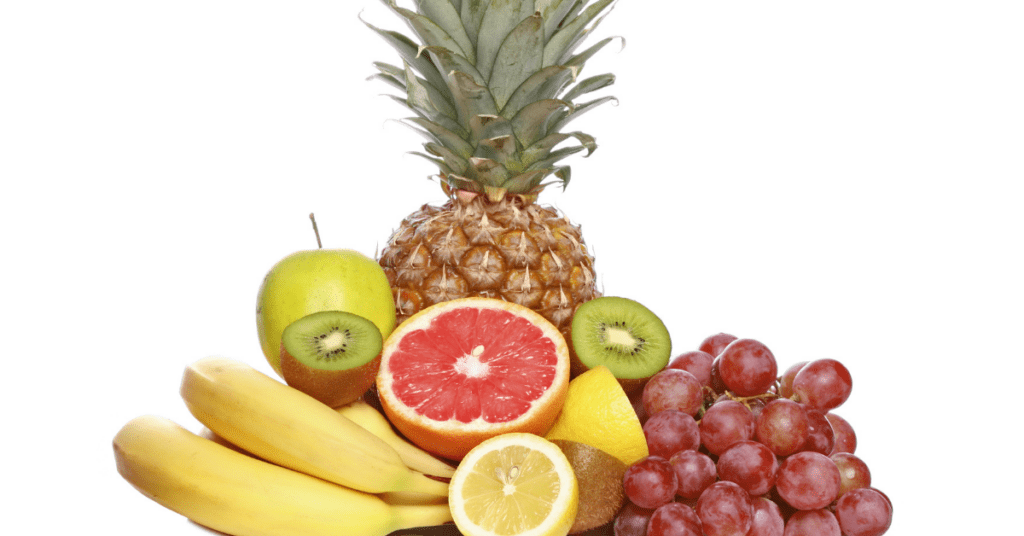It is approaching 10 years now since I got my lupus nephritis diagnosis. I’ve been looking for a lupus treatment since that day.
It’s surprising that in all those years I’ve never seen an immunologist.
You’d think they would want to help find a potential trigger – or triggers.
Nor did I receive any specific or specialist diet or lifestyle advice.
Sorry… I did get given a leaflet on protein sources and told to avoid eating too much. Which, let’s be fair, warrants an eye-rolling emoji.
Even though studies do exist that lay out a nutrition plan for those of us with systemic lupus. Research papers that set out a basic diet plan for lupus patients.
This is what we will cover in the following article.
Introduction
Lupus nephritis is a common complication for patients with systemic lupus.
If you have lupus, you have around a 66% chance of developing it at some point. Either by way of frothy-urine, to end-stage kidney disease.
Having lupus nephritis means you have higher odds of ill health or death. In comparison, if you do not have lupus nephritis. [1] Raising the already-high healthcare costs of lupus. [2]
The average age of death for lupus nephritis is as low as 40 years old. It has an average space of seven and half years between diagnosis and death. [3] This is a real cause for concern.
So, if, like me, you have lupus nephritis then the goal is to reach complete remission. Sustaining this for five years and more equals a brighter future. [4]
What’s more, lupus nephritis requires a kidney biopsy for diagnosis. No blood tests exist to replace this. [5] Therefore, if you fear needles there’s even more reason to avoid this.
Key Message
Lupus nephritis is a concern for all with systemic lupus. If you do not have it, you should aim to avoid it. If, like me, you do, then you want to reach remission sharpish. As the statistics are not the greatest.
How do they Treat us with Lupus Nephritis?
The treatment plan for lupus nephritis is immunosuppressive drugs and glucocorticoids. Both of which offer proven benefits that keep us living longer. [6]
But they increase your risk of infections – the serious ones. This is because both immunosuppressants and glucocorticoids suppress the immune system. [7]
Also, as with any potent medication, they are not without side effects. For example, glucocorticoid drugs can damage most of your major organ systems: [8]
- Musculoskeletal (body tissues)
- Gastrointestinal (stomach)
- Cardiovascular (heart)
- Endocrine (hormones)
- Neuropsychiatric (mental health)
- Dermatologic (skin)
- Ocular (eyes)
- Immunologic (immune system)
In fact, studies show it costs more to deal with the side effects that glucocorticoid creates. [9] For example, taking these for less than 30-days will increase your chances of: [2]
- Bone fractures
- Pneumonia
- Sepsis
- Venous thromboembolism
- Myocardial Infarction
What’s more, this is one single example of the bad effects your medicine can cause.
For instance, my medicine box contains five different medications.
Science suggests that each extra medication you take places you closer to death. Each drug puts you at a 22% greater risk of going from health to death… if you’re an older male at least. [10]
Likewise, one in five older adults will take a drug that will worsen a coexisting condition. [11]
So, stick with your prescription. But do not continue living life like drugs will keep you healthy. In the end, it could be a lot worse.
Key Message
The same thing that makes you better could make you worse. What may seem like a gift could be a curse.

Why are we relying on prescription medications so much?
The problem with Western medicine
Western medicine lacks soul.
Since way back when Aristotle was learning from Plato. Medical intellectuals have been asking, “What is the soul?”
. . . the soul does not exist without a body and yet is not itself a kind of body. For it is not a body, but something which belongs to a body, and for this reason exists in a body, and in a body of such-and-such a kind
Aristotle
Plus, many cultures and religions base their belief on both, body and soul.
“For the word of God is living and operative and sharper than any two-edged sword, and piercing even to the dividing of soul and spirit and of joints and marrow, and able to discern the thoughts and intentions of the heart.”
Hebrews 4:12
Yet, it seems ‘Western medicine’ has given up on this idea.
Today, they view the body as a ‘soulless’, complicated machine. Where they can insert “biological substances” and hope for health to be seen.
Over the last one hundred years, the medical profession, with the help of government, academia, and big business, has turned Western medicine into a “healthcare delivery system” in which biological material is the input, and health the hoped-for output.
Michel Accad [12]
These biological materials come in the form of a prescription. Highlighting big pharma’s interest in our treatment. But also, why are we left to rely on a monthly batch of pills and a regular consultation?
This gives people false hope that medicine will always come to help.
There is also no doubt, the management of lupus has grown by leaps and bounds in the last 10 years. [13]
But you can’t hold your breath on the idea that a magic pill will appear. In truth, one new drug for lupus has come about in the past 60 years. This was “belimumab’ in 2011. [14]
Plus, all potent medications come with potential problems.
The problem with the Western Lifestyle
It’s easier to pop a pill than make lifestyle changes.
But the answer lies in taking responsibility for your own health. No one else will – nor should.
Take life in lockdown for example.
Following our government’s guidelines during the pandemic has gotten us fatter. [15]
With schemes like ‘eat out to help out,’ there’s no wonder that we’re eating more takeaways than ever before. [16] It was already rising; it didn’t need promoting.
The “Western Lifestyle” is under the scope of being a big player in autoimmune diseases. For example, numbers have been increasing worldwide over the last 30 years. With no signs of slowing down. [17]
But there seems to be a trend towards “Western countries”. With lower rates seen in Eastern and developing nations. [18]
Recent research by the World Cancer Research Fund (WCRF) supports this. Their results show that the diet habits of people in the UK have changed over the last 3 decades. [19]
“Today, thanks in part to our key role in funding research and public health messaging, more people than ever before are now aware that they can lower their risk of cancer through making moderate, but impactful, changes to their diet and lifestyle.”
Rachael Gormley, CEO of WCRF
There are also other reasons why western life may trigger autoimmune conditions. One such example is the lack of physical activity. Alongside too many calories and frequent ‘fast food’ meals. All contributing to our obesity problem. [20]
With 62.8% of adults in the UK being overweight or obese, this is a real worry. [21] You can see what obesity levels are in your country by clicking here.
Especially when you consider obesity as a contributing factor for lupus. One that affects your quality of life, social function, and energy levels for the worse. [22]
Besides, overweight lupus patients report more: [23]
- Pain
- Depression
- Fatigue
- Higher disease activity
There is no wonder we are starting to see the life expectancy age drop. [24]

Can lupus be helped by diet?
It is easy to blame your genetics as your reason for lupus.
But there are three key digestive health issues with links to autoimmune diseases: [25]
- Dysbiosis (drop-in gut diversity)
- Intestinal permeability (leaky gut)
- Long-term inflammation
All of which you could treat by diet.
For instance…
Science suggests that bacterial imbalances may be driving lupus and triggering flares. Alongside bacteria leaking from the gut. [26]
Likewise, a mouse study suggests supplementing with the probiotic “lactobacilli” and retinoic acid – a form of Vitamin A – can relieve inflammatory flares in lupus patients. [27]
Plus, recent rodent research shows switching from the ‘Western diet’ to a more balanced one restore gut health. Suppressing skin inflammation and reducing psoriasis flares. [28]
This shows that switching up your diet for the better could be the key to health. Especially if you eat a typical ‘Western diet’, which feeds long-term inflammation. [29]

What is the best diet for lupus?
The Western diet is one of plenty of poor-quality animal protein, refined sugar, salt, and long-chain saturated fats. [29]
Trying to step away from this diet and lifestyle is never easy when its culture surrounds you. But it has become even harder post-pandemic. Where you may have new bad behaviours like: [30]
- Eating to cope
- Mindless eating and snacking
- Eating more than you did before
But this is a crucial step in treating your lupus. One that you cannot afford to bunk off.
A personal approach is best. Studies showing a personalised nutrition intervention can benefit you with lupus. Such as: [31][32]
- Better body weight and nutrient intake
- Improvements in energy levels and performance
- Resolving skin rashes and acid reflux
- Easing joint pain and stiffness
- Lessening brain fog
5 Steps to a Good Diet for Lupus
Science suggests a good diet for lupus is one that is:

#1: Low in Calories
Keeping calories low has links to many health benefits. These range from a longer lifespan, to a much lower chance of developing:
- Cancer
- Heart disease
- Diabetes
- Neurodegenerative conditions such as Alzheimer’s
The idea is that restricting calories lowers your body temperature. Which is evolution’s way of helping you conserve energy until food is available again. And in turn, this changes “metabolites” within your body… providing benefits. [33]
Caloric restriction also helps the immune system.
Restricting calories can shift immune cells toward less inflammatory “phenotypes”. Some of which may play a big part in lupus development. [34]
Plus, caloric restriction also leads to changes in the gut microbiota. [35]
This may be why keeping calories low prevents the progression of lupus-like disease in mice. [36][37]
So, a low-calorie diet appears to slow lupus down at least.
How low do you go?
Science suggests a caloric ratio of:
- 1,000 – 1,2000 kcal a day for women
- 1,200 – 1,4000 kcal per day for men
That is around 1,000 kilocalories less a day than the UK government recommends.
This approach does value calories over nutrients though. So, it’s not advice to take and run with.
Remember, nutrients over calories. It is more what you eat, rather than how much you eat.
If anything, it highlights the need for a nutrient-rich diet. One in which we don’t overconsume. Especially on ‘empty calories AKA junk food.
Thus, make every calorie count.

#2: Naturally-Colourful
It is possible to be undernourished, yet overfed.
“Hidden hunger” is a term that refers to a lack of dietary vitamins and minerals. Where levels are so low that they affect the health and development of children. Besides, the normal physical and mental function in adults. [38]
The ‘hidden hunger’ due to micronutrient deficiency does not produce hunger as we know it. You might not feel it in the belly, but it strikes at the core of your health and vitality.
Kul C. Gautam, former deputy executive director of UNICEF
Poor diet is a common cause of hidden hunger.
Diets based on staple crops, such as corn, wheat, rice, and cassava can result in a hidden hunger. These crops provide a lot of energy, but low levels of essential vitamins and minerals. This is one reason why the “western diet” is an ever-growing concern.
Pound-for-pound, vegetables are at least contenders with the qualities to be champion. They are rich in vitamins, minerals, and fibre. Yet low in calories.
Science suggests that most of us with systemic lupus have a low intake of vitamins and minerals. In particular iron, calcium, and zinc. [39][40]
Not ideal. Especially as a diet rich in vitamins and fibre benefits the immune system. [41]
This may explain why a six-week raw vegan diet plan eased lupus nephritis. In this short time, it was seen to improve kidney function so the patient no longer needed dialysis… nor a transplant. Even improving their joint pain. [42]
Your diet is fuller with colour!
Fruit and vegetables also provide “antioxidants”. Preventing cell damage and improving our oxidative stress status. Something that is important when it comes to systemic lupus.
If these terms appear foreign to you, click here give this article a read after.
The antioxidant content of a plant influences its colour. So, eating fruit and vegetables of all sizes and colour is a sure way to get a variety. Especially as some plant-food have a different colour in their inner and outer part. [43]
Plus, vegetables in particular, are a rich source of fibre as well. Something else you may be low on if you have lupus. [39][40]
Fibre intake reduces the severity of systemic lupus. A result of how fibre interacts with Vitamin B6, Vitamin B12, and folate. [44] Fibre also feeds your gut bacteria. [45]
All reasons why it is crucial to eat a naturally-colourful diet. No, Skittles do not count.
Aim to eat two portions of fruit a day and three vegetables… at least. Choosing different colours where possible.
– Click Here to Learn What Vitamin You Will Be Deficient of if You Have Lupus –

#3: High in Healthy Fats
Fats are not the enemy. Let’s get that out the way.
As with everything; there’s good and bad.
For instance, Omega-3 fatty acids appear to be anti-inflammatory. Lowering the severity of lupus and increasing survival in mice. [46]
Whilst, Omega-6 fatty acids raise antibodies, protein in the urine, and inflammatory proteins. [47]
Similar responses seem to show in humans. Studies show Omega-3 can have therapeutic benefits for you if you have lupus. [48] Whereas Omega-6 inflates inflammation markers. [49]
In fact, Omega-3 and Omega-6 compete with one another in your body. This is why it is important to eat the right balance.
But if you eat a typical western diet, you could be eating 15-20 times more Omega-6. This favours the development of conditions like: [50]
- Cancer
- Cardiovascular
- Inflammatory
- Autoimmune Diseases
Soy, corn and vegetable oils are the main sources of Omega-6. So, these are foods that are best avoided.
But adding Omega-3, or increasing your levels, can reduce your lupus markers. Like antibodies, inflammation, protein in the urine, and blood pressure. With no ill effects seen in lupus patients after taking omega-3 supplements. [51]
It even benefits your gut bacteria. Changing your gut make-up and promoting anti-inflammatory compounds. Helping maintain a healthy gut wall and immune system. [52]
Omega-3 seems to stop the development of lupus from “crystalline silica” exposure. This is a toxic mineral, known as quartz, that can trigger lupus. [53]
– Click here to read more on how Quartz can cause Lupus –
Where to get Omega-3?
Krill oil from Antarctic krill is the best fish oil since it contains high amounts of Omega-3. But other good sources include: [54]
- Fish oil
- Olive oil
- Canola oil
- Flaxseed oil
- Fish (Salmon, tuna, sardine, herring, etc.)
For meat-free folks… 30-grams of flaxseed a day can improve kidney function if you have lupus nephritis. [55]
Whatever you opt for, aim to get two grams a day of Omega-3 in. This is the least needed to achieve an anti-inflammatory effect. Still, studies show doses as high as 18g/day are safe and beneficial. [55]
This is an overview of the importance of fats in your diet. For instance, there are Omega-9 fats also. Click here to learn more about fats and lupus.

#4: Moderate in Meat
The only nutritional advice I had was to limit my protein intake.
The argument for a low-protein diet
Lupus nephritis is a kidney condition. This brings up at least five concerns: [56][57]
- Digesting protein produces waste products that build up in your body. Even in patients with early-stage chronic kidney disease.
- The more protein you eat means the more acid and a higher intake of salt and phosphates. Each of these can contribute to kidney damage or worsen kidney disease.
- High protein and/or salt intake can prevent your kidney-benefiting medication from working. These are the ACE inhibitors like Ramipril.
- Eating animal protein may shift your gut bacteria towards a more inflammatory one. This could reduce kidney function and raise your odds of cardiovascular disease.
- Diets rich in meat can increase your levels of “arachidonic acid”. [58] This is a pro-inflammatory fatty acid that can fuel oxidative stress.
The argument for the need for meat
A study in mice shows that immune therapy with folate minimises the symptoms of systemic lupus. Pro-longing their lifespan. [59] Likewise, an animal study suggests niacin, a form of Vitamin B3, could benefit people with lupus nephritis. [60]
High doses of folate, AKA Vitamin B9, and Vitamin B6 may also ease lupus severity in humans. Regardless of their non-dietary factors. [61]
Plus, living with lupus seems to mean you have low levels of Vitamin B12. [62]
This all highlights how important the Vitamin B complex could be for lupus.
The best food supply for vitamin B is red meat, liver, and then fortified cereals. But it is also in chicken, salmon, sardine, nuts, eggs, banana, and avocado.
What’s more, Taurine, found in meat, eggs, and oysters also, could offer a novel strategy to treat lupus nephritis. One that reverses disease progression by: [63]
- Preventing renal cells from dying
- Decreasing oxidative stress in kidneys
- Restore kidney injury
Yet, there is a need for more research as taurine may worsen lupus nephritis… according to a different study. [64]
Can you eat meat if you have lupus?
The answer to this question seems to be:
Eat meat in moderation… and choose good quality meats. Plus, have a few meat-free days each week.
You need meat in moderation. For Vitamin B. But also, for minerals like iron, which lean white meat and dark green leafy vegetables are important.
Having a meat-free day every other day, or so, can be good also. For instance, vegan and vegetarian diets may have lower inflammation. [65]
In fact, a diet high in animal protein – except fish – upped inflammation markers in one study. Whereas vegetable protein had no impact. This could be due to the high levels of long-chain saturated fats that can be in the meat. [66]
“Arachidonic acid” is an example of these long-chain fatty acids. Meat and eggs are a source of such fat. But too less of an extent than vegetable oils like sunflower, soybean, corn, or grapeseed oils. Of which they can contain a level of 55-65%. [67]
What’s more, the ratio of Omega-6 to Omega-3 can differ depending on what the animal eats.
For example, grass-fed animals contain higher Omega-3. Whereas grain-fed animals have more Omega-6. [68]
The best meat for fat – is ruminant meat. Especially lamb and young cattle grazed with a limited amount of compound feed. [69]
In other words, opt for grass-fed meat. And eat meat in moderation. With one study specifying an intake of 0.6 grams, per kilogram of your body weight, each day. [70] A high protein intake is one with over 1.2 grams per kilogram.

#5: Supported with Sensible Supplements
There are some supplements that you can use in managing your lupus. Either through regulating the immune system or reducing inflammation. Such examples include:
Vitamin D
It is easy to see why vitamin D deficiency is common in those with lupus. Many avoid the sun because it triggers both skin and body inflammation. On top of medications that alter or downregulate vitamin D metabolism. [71][72]
Low vitamin D seems to dictate your disease activity also. As well as your odds of: [73]
- Osteoporosis (brittle bone disease)
- Fatigue
- Certain cardiovascular issues
So, it seems sensible to take a vitamin D supplement.
Top Tip: Take magnesium with your vitamin D. It helps with absorption as it increases the number of receptors. [74]
NAC, or N-acetyl cysteine
N-acetylcysteine (NAC) is an antioxidant that scavenges “free radicals”. Enhancing glutathione biosynthesis and detoxification. [75] Thus, minimising oxidative stress and its associated effects. This is important when it comes to systemic lupus.
In fact, NAC appears to have positive effects on the immune system. [76] A pilot study shows NAC reduces the oxidation of fats, proteins, and DNA. As well as improving organ damage in those of us with lupus. [77]
– Learn more on Oxidative Stress and Lupus by clicking here –
Royal Jelly
If something is good enough for the queen bee, it must be worthy for us?
Royal jelly comes from young worker bees to feed the queen bee. This is what makes queen bees so superior. Enabling them to live 5-7 years, in comparison to the 35-40 days of a worker bee.
It is rich in free amino acids, simple carbohydrates, proteins, short-chain fatty acids, and vitamins. It can lower your cholesterol and has immunomodulating and anti-inflammatory abilities. But more so, it can delay lupus and prolong life… at least in mice. Reducing both inflammation and antibodies and improving kidney symptoms. [78]
Royal jelly appears to benefit you as a person with lupus. Showing it lowers certain immunological markers. [79]
There are more supplements than this. Stay up to date for an article on this subject.
Final thoughts
The western world has lost its soul.
It has lost touch with your body’s connection to nature through food.
To beat lupus, our diet must:
- Lower inflammation
- Keep the gut walls healthy
- Balance out your gut bacteria so it is not overrun by bad bacteria
- Promote a healthy immune system
These five steps are a good start on the path to health. But it isn’t the final product.
For instance, gluten can cause inflammation and even dysbiosis. Both of which may contribute to creating an autoimmune condition.
Then you have the possible pro- and pre-biotics available that could benefit your gut health. That, in turn, would benefit your lupus and wellbeing.
Not to mention the foods and chemicals you come in contact with that are bad for yourself.
In truth, there are many diet and lifestyle changes needed to take you from lupus and health. This is the purpose of this website. If this is your hope in life, join the newsletter to stay inundated with new content.
I would love to know your thoughts on this. Please leave a comment below or feel free to contact me here.
I hope you have found out some new information here that can help you on your way to health. If you like this article, you will find more here.
Pingback: What Causes Lupus? (An up-to-date answer in 2021) -
Pingback: Scientists finally find a genetic cause of Lupus -
Pingback: Could Lupus be a Blood Disorder? -